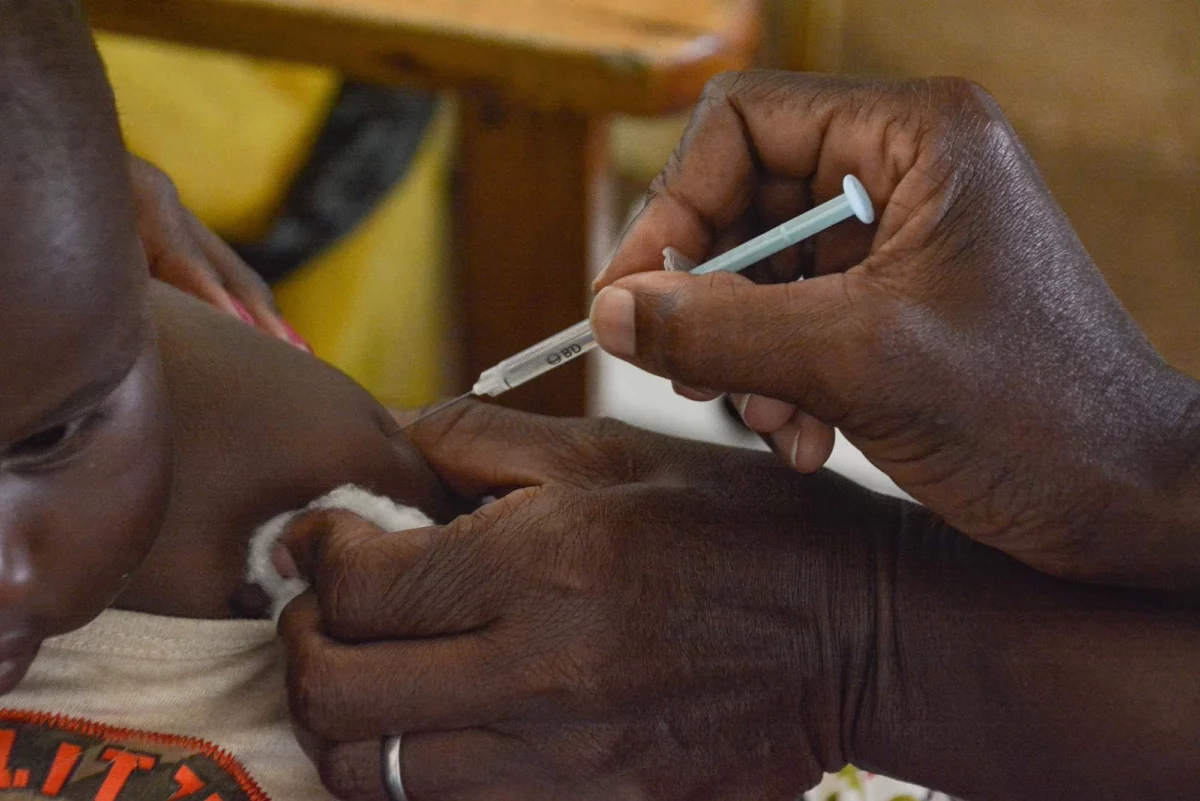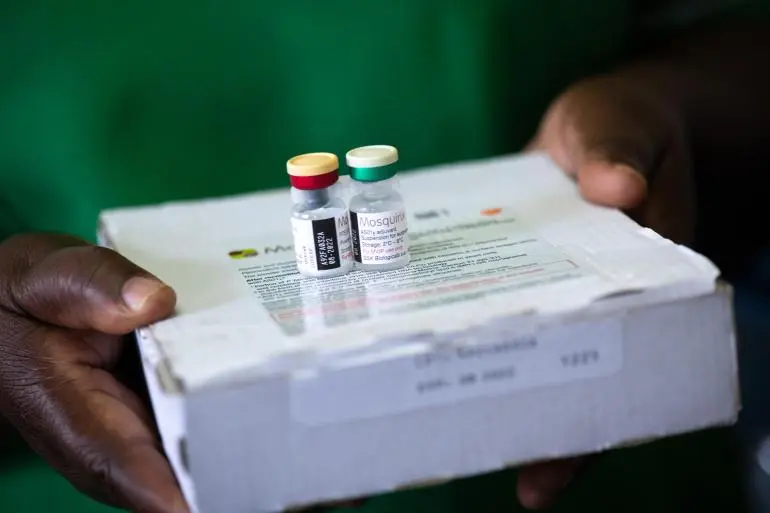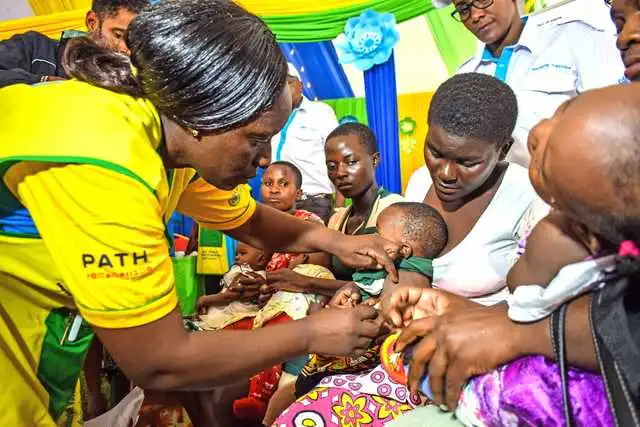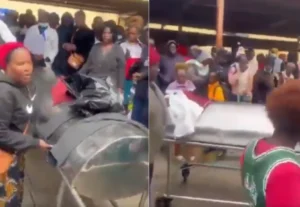Dr Ben Omollo, a general physician at The Nairobi West Hospital, says children bear the biggest brand of severe malaria and should be prioritised to receive the malaria vaccination.
Every year, millions of people in Africa are affected by this disease, which can cause severe fever, chills, and flu-like symptoms. World Malaria Day, which falls on April 25 each year, aims to raise awareness about the impact of malaria and promote efforts to control and prevent the disease.
RTS,S/AS01 (RTS,S) is a vaccine that acts against Plasmodium falciparum, the deadliest malaria parasite globally and the most prevalent in Africa. RTS,S is the first malaria vaccine recommended for use to prevent malaria in children in areas of moderate to high malaria transmission.
Implementation of the malaria vaccine through pilot introductions in Ghana, Kenya and Malawi has resulted in a substantial reduction in deadly severe malaria and a drop in child deaths.
The three-year-old pilot fo the new vaccine started in September 2019, with the vaccine made available to children in eight counties in the Western and Nyanza region, considered Malaria-prone zones, targeting roughly about 1.2 million children.
The RTS,S pilot targeted 26 sub-counties in Homa Bay, Kisumu, Migori, Siaya, Busia, Bungoma, Vihiga and Kakamega counties.
Following a successful pilot which saw a significant reduction in severe malaria attacks, child hospital admissions and related fatalities, Kenya moved to the next phase and began the malaria vaccine expansion outreach in February, to cover an additional 25 sub-counties

Parents are encouraged to direct their children to take the RTS,S malaria vaccine to prevent them from getting infected by the disease that has plagued Africa since time immemorial, as the world marks World Malaria Day.
The four-dose vaccine will be given to children of age 6, 7, 9, and 24 months starting with Kisumu, Siaya, Homa Bay, Migori, Busia, Kakamega, Bungoma, and Vihiga among other areas considered to have high malaria transmission.
“RTS,S malaria vaccine is the first vaccine recommended to prevent malaria in children and if implemented broadly the vaccine could save tens of thousands of lives each year in the country,” Dr Omollo said during an interview with Star.
Read Also: 4 People Dead, Others Injured in Nakuru-Eldoret Road Accident

Dr Omollo described Malaria as a serious disease that is caused by the Plasmodium parasite and transmitted by the female Anopheles mosquito.
“There are different types of Plasmodia depending on the cells they affect. There’s what we call P. falciparum, P. malariae, P. vivax, and P. ovale. So, these parasites are what carry malaria and are normally transmitted by female Anopheles mosquitoes,” Dr Omollo said.
“After being bitten by an Anopheles mosquito, it takes close to seven to 14 days for malaria symptoms and signs to manifest, because of the life cycle,” he said.
“Once a mosquito bites you and injects the parasite, they multiply. They first go to the liver and multiply then go to different blood cells and multiply by the time you start having the symptoms, you normally have up to 2 million parasites in your body.”
Dr Omollo also said Malaria symptoms are divided into two — mild symptoms and severe symptoms. Mild symptoms include fever, general light body weakness, fatigue, feeling nauseated, vomiting, muscle pain, and generalized features of acute fibrates illness.

“In severe malaria, you have the symptoms but in addition to that there are more serious symptoms like we have patients presenting with seizures and when you do a malaria test you find they have several parasites that are possibly cerebral malaria and sometimes they even go into a comma,” Omollo said.
“Patients also have low blood sugar levels what is known as hypoglycaemia, which is a feature of severe malaria.”
Kenyans are advised to take preventive measures which include using mosquito repellents, wearing protective clothing, and sleeping under a treated mosquito net especially for pregnant women and children in malaria-endemic zones to avoid getting infected by malaria.
World Malaria Day: What Africa Needs to Know
Malaria is one of the leading causes of death in Africa, especially among children under the age of five.
At the heart of any successful malaria control program is education. It is important for Africans to know about malaria, including its signs and symptoms, how to prevent it, and the latest advances in malaria treatment.
Understanding the Signs and Symptoms of Malaria
Malaria is caused by a parasite that is spread through the bites of infected mosquitoes. The signs and symptoms of malaria can vary depending on the severity of the infection but typically include:
- Fever
- Chills
- Sweats
- Headache
- Body aches and pains
- Nausea and vomiting
- Fatigue
In severe cases, malaria can cause jaundice, seizures, and coma. It is essential to seek medical attention if you experience any of these symptoms, particularly if you live in an area where malaria is prevalent.
Preventing Malaria
The most effective way to prevent malaria is by avoiding mosquito bites. Here are some tips to help reduce your risk:
- Use insect repellent on your skin and clothing
- Wear long-sleeved shirts and pants
- Use mosquito nets when sleeping
- Stay in air-conditioned or screened-in rooms
- Avoid outdoor activities at dusk and dawn when mosquitoes are most active
In addition to these preventative measures, there are also medications that can help protect against malaria. These medications are typically prescribed based on the destination and duration of your trip, so it is important to consult with a healthcare professional before travelling to a malaria-endemic area.
Latest Advances in Malaria Treatment
Malaria is a treatable disease, but it is essential to seek medical attention as soon as possible. The World Health Organization recommends artemisinin-based combination therapies (ACTs) as the first-line treatment for uncomplicated malaria.
ACTs are highly effective and have contributed significantly to the reduction in malaria deaths over the past decade. However, there is growing concern about the emergence of drug-resistant strains of malaria, particularly in Southeast Asia.
To combat this problem, researchers are exploring new treatments, including RTS,S/AS01, which have shown promising results in clinical trials and could be a game-changer in the fight against malaria.
Subscribe to our Youtube channel Switch TV
















